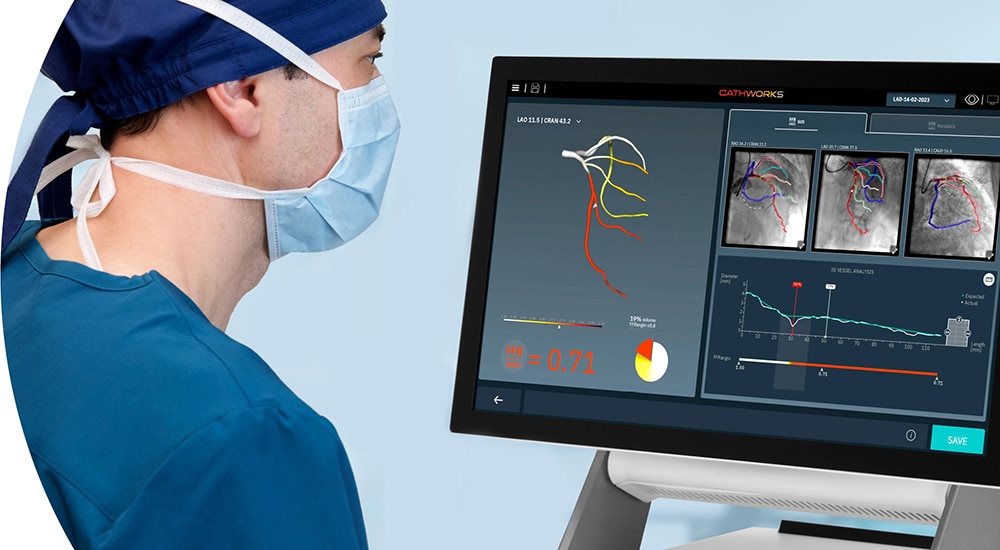Product therapy and innovation
Clinical evidence
Education and training
Connect with us.
Additional resources
Products
Filter by
®* Third-party brands are trademarks of their respective owners.
† Valve performance as defined as freedom from bioprosthetic valve dysfunction (BVD) at 12 months. BVD is a composite including any of the following: hemodynamic structural valve dysfunction (mean gradient ≥ 20 mmHg), nonstructural valve dysfunction (severe prosthesis-patient mismatch or ≥ moderate aortic regurgitation), thrombosis, endocarditis, and aortic valve reintervention.
‡ In patients with small annuli (area ≤ 430 mm2) in all-comers trial, consisting of majority low surgical risk participants (52.1%).
TAVR risks may include, but are not limited to: death, stroke, damage to the arteries, bleeding, and the need for a permanent pacemaker.
- Based on Evolut™ FX+ Test Report: DO1106198 Rev. A. Medtronic computational data model on file compared to the Evolut™ platform. Bench top computational model may not be indicative of clinical performance.
- Based on Evolut™ FX+ Test Reports: D01073856, D01095344, D01084996. Performance as compared to Evolut™ PRO+ and FX system in bench testing. Bench testing may not be indicative of clinical performance. Medtronic data on file.
- Morrison N, Gibson K, McEnroe S, et al. Randomized trial comparing cyanoacrylate embolization and radiofrequency ablation for incompetent great saphenous veins (VeClose). J Vasc Surg. April 2015;61(4):985–994.
- Proebstle T, Alm J, Dimitri S, et al. Three-year follow-up results of the prospective European Multicenter Cohort Study on Cyanoacrylate Embolization for treatment of refluxing great saphenous veins. J Vasc Surg Venous Lymphat Disord. March 2021;9(2):329–334.
- Gibson K, Ferris B. Cyanoacrylate closure of incompetent great, small and accessory saphenous veins without the use of post-procedure compression: Initial outcomes of a post-market evaluation of the VenaSeal System (the WAVES Study). Vascular. April 2017;25(2):149–156.
- Almeida JI, Javier JJ, Mackay EG, Bautista C, Cher DJ, Proebstle TM. Thirty-sixth-month follow-up of first-in-human use of cyanoacrylate adhesive for treatment of saphenous vein incompetence. J Vasc Surg Venous Lymphat Disord. September 2017;5(5):658–666.
- Morrison N, Gibson K, Vasquez M, Weiss R, Jones A. Five-year extension study of patients from a randomized clinical trial (VeClose) comparing cyanoacrylate closure versus radiofrequency ablation for the treatment of incompetent great saphenous veins. J Vasc Surg Venous Lymphat Disord. November 2020;8(6):978–989.
- Abre™ stent instructions for use.
- Test data on file at Medtronic. Bench test results may not be indicative of clinical performance.
- O'Hair D, Yakubov SJ, Grubb KJ, et al. Structural valve deterioration after self-expanding transcatheter or surgical aortic valve implantation in patients at intermediate or high risk. JAMA Cardiol. February 1, 2023;8(2):111–119.
- Jørgensen T. Ten-year follow-up after transcatheter or surgical aortic valve implantation in severe aortic valve stenosis. Presented at ESC Congress; August 2023.
- Melas N, Perdikides T, Saratzis A, Saratzis N, Kiskinis D, Deaton DH. Helical EndoStaples enhance endograft fixation in an experimental model using human cadaveric aortas. J Vasc Surg. June 2012;55(6):1726–1733.
- Schlösser FJV, de Vries JPPM, Chaudhuri A. Is it time to insert EndoAnchors into routine EVAR? Eur J Vasc Endovasc Surg. April 2017;53(4):458–459.
- Tassiopoulos AK, Monastiriotis S, Jordan WD, Muhs BE, Ouriel K, De Vries JP. Predictors of early aortic neck dilatation after endovascular aneurysm repair with EndoAnchors. J Vasc Surg. July 2017;66(1):45–52.
- ANCHOR 4-year primary arm. 2019 data cut. Medtronic data on file.
- Muhs BE, Jordan W, Ouriel K, Rajaee S, de Vries JP. Matched cohort comparison of endovascular abdominal aortic aneurysm repair with and without EndoAnchors. J Vasc Surg. June 2018;67(6):1699–1707.
- Holden A. The IN.PACT AV Access Study: Results through 36 Months. Presented at Charing Cross 2022.
- Herrmann HC, Mehran R, Blackman DJ, et al. Self-Expanding or Balloon-Expandable TAVR in Patients with a Small Aortic Annulus. N Engl J Med. 2024. Online ahead of print. doi:10.1056/NEJMoa2312573.







